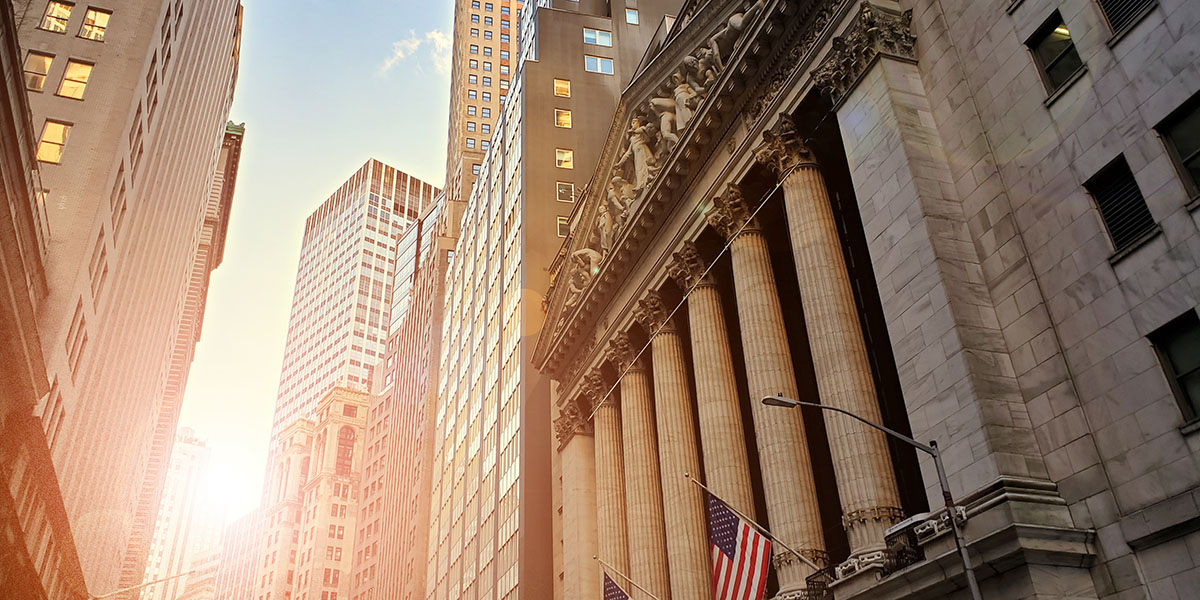For those of you who would prefer to listen:
It’s that time again: Earnings Season. Corporate America delivers its quarterly report cards to show investors how they’re doing. It’s a time to focus on facts. It’s about execution and results. Above all else, over time, it’s earnings that drive stock prices.
Corporate America is facing a slowdown. Q1 earnings for the S&P 500 companies are expected to decline for the second straight quarter. Considering the backdrop with inflation, the banking crisis and escalating geopolitical risks, it’s hard to imagine that management teams are overly optimistic about the rest of the year. The Street is looking for S&P 500 earnings to decline 6.6% in the March quarter compared to a year ago. That would follow the 5.8% contraction in Q4 ’22. That said, things are expected to recover big time this Summer into year-end. The Street is estimating the second half of the year to accelerate with record levels for earnings. We just don’t see that happening in this environment.
Earnings Season always starts out with the Big Banks. They kicked things off Friday with great attention. There was some obvious and understandable nervousness in the wake of the Silicon Valley Bank failure last month. There has been some serious financial stress in the system. The Big Banks showed Friday they’re still in good shape.
JP Morgan is the titan of the group, which have certainly benefitted from the recent banking crisis. The crisis has mainly impacted the regional banks, like SVB, First Republic and Signature. Wall Street is paying close attention to the deposit flight from the smaller regional banks to the large ones. Money flowed aggressively to the large, systemically significant institutions like JP Morgan and Bank of America. The big money has flowed to the brokerage firms and directly into Treasuries. There is also a focus on tighter lending standards and the potential for regulatory reform, both of which choke off growth. We’ll learn more next week when the regional banks and the brokers report.
The biggest week for earnings will be the last week in April. Roughly 40% of the S&P’s market cap will be releasing their report cards that week, led by Apple, Amazon, Microsoft and Google. Apple and Microsoft account for 13% of the S&P 500 alone. Tech stocks have done well so far in 2023, coming off a brutal 2022. How these companies manage through the challenges and maintain growth rates will have great influence on the path ahead. These earnings reports are always Market moving.
Inflation keeps falling. The March CPI (Consumer Price Index) came in at 5%. Of course, that is still high. But the shrinking trend continues with consecutive monthly declines since the peak last Summer at 9%. Producer prices actually fell in March, meaning the costs of inputs for manufacturers not only stopped going up at a faster rate; They fell. That beat expectations by a pretty wide margin. Lower inflation is central to the Bull thesis. It’s happening. But unfortunately, prices aren’t falling everywhere.
It’s not all good news, though, in this inflation. Oil prices were down in the $60s in March. They’re back over $80 now. Americans are paying more at the pump this Spring. That phantom tax sucks money away from other discretionary spending in the system. Debt levels have risen and the cost to service said debt rose too. The higher prices sure put a dent in the ability to spend.
The Economy is slowing. That was the Fed’s goal. It’s happening. Retail sales fell twice as much as expected in March. Higher prices, lower tax refunds and an end of pandemic-era benefits are playing a role. Consumer spending accounts for 70% of economic activity. The question still yet to be answered is whether the US Economy goes into recession. The Bond Market keeps saying yes. It hasn’t budged on that opinion for over a year. The Stock Market is more fickle on the subject, certainly maintaining more optimism. The wide swings of volatility can take a toll on investors. But Bear Market rallies sure can suck people back in. It seems to be happening again.
The Bull-Bear brawl is getting more contentious. The Bulls have the upper hand in April after the Bears lost footing around the banking crisis. Breadth has widened a bit of late. But leadership is still really narrow. Just 20 stocks, mostly in Big Tech, account for nearly 90% of the S&P 500’s gains this year. In fact, half of the S&P 500 components are lower than they were 2 years ago. The Tech Titans tend to do better in a higher rate environment because they generate hordes of cash and generally don’t need to borrow. This group is increasingly seen as a safe haven while exposed to the secular growth themes, namely Artificial Intelligence. Gold has been working too, approaching record highs.
I caught an interview with famed investor Warren Buffett this week, affectionately known as the Oracle of Omaha. He’s famous for betting on America. He’s still doing it. There’s a lot of confusion right now. Fear is on the rise. Buffett said that fear is easy to arouse. He quoted FDR, who said the only thing to fear is fear itself. He was right. Buffett said people don’t really understand the financial system. The fear of not getting your money out when you want it becomes reality when there’s a run on the banks. Fear becomes contagious and it spreads like wildfire. The system doesn’t work without trust. Trust is being tested, pretty much everywhere. “Unnecessary fear is a terrible thing, but it’s part of humankind.” Agreed.
Buffett talked about inflation. He’s not worried. The US has generally done a good job on inflation throughout its storied history. That is Warren Buffett’s belief. He says Paul Volcker acted heroically in a seminal moment. That was the 1980s. Fed Chair Powell admires the former Fed Chair, as does Buffett. It took guts to whip inflation back then. Volcker was hated. Now he’s revered. It’s a great reminder that being a great leader isn’t always popular at the time. It takes guts. You have to do what’s necessary and tell people what they need to hear, especially when they don’t want to hear it. That’s real leadership. These days, it’s more popular to tell people what they want to hear. Leadership, that is not.
Stress comes from worrying about things you can’t control. There’s a lot of stress out there. Buffett says that’s not new. “It’s man’s nature to be dissatisfied.” At 92 years old, Buffett adamantly says the world has changed so much for the better in the last 100 years. Innovation drives it. Our society constantly adjusts. Most people don’t work on weekends, he points out. It’s all about perspective. Buffett has 9 decades of experience and perspective to lean on. He’s the ultimate long-term investor. He says he got rich slowly, not falling for any get-rich-quick schemes, which he believes always fail. Buffett drinks 5 Cokes a day and eats what he wants. He will happily trade an extra year of life to do that… and he’s doing it.
Back to the Market:
We often say that we are long-term investors equipped to deal with short-term issues. Recessions and Bear Markets are part of the natural economic cycle. That said, cycles have not been natural in the 21st century. The Fed has played an active role in the financial system ever since the Financial Crisis of 2008. It went bigger than ever before in response to Covid. The Fed power-sprayed money at the problem, adding another $5 Trillion to its balance sheet, which hit a record $9 Trillion. It was the most liquid system in history, which led to those asset bubbles in 2021.
The Fed started reducing that balance sheet while hiking rates to fight inflation. It metaphorically took away the punch bowl, which ended the party in 2022. It brought back the punch bowl with a fresh spike in response to the bank crisis a month ago, and the Stock Market started partying again. The Fed meets in 3 weeks. Another rate hike is expected. The Market is assigning an 83% probability of a quarter-point increase, taking the overnight rate above 5%. That’s a level not seen since before the Financial Crisis. The price of money keeps getting more expensive. That chokes off growth. It’s by design.
So this Bull-Bear brawl has more to go, it seems. Our sense is the Bear takes hold again before a brand new Bull emerges later in the year. We are used to this choppy price action. We keep navigating through it and are holding in just fine.
Have a nice weekend. We’ll be back, dark and early on Monday.
Mike







